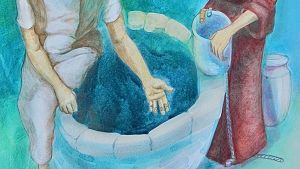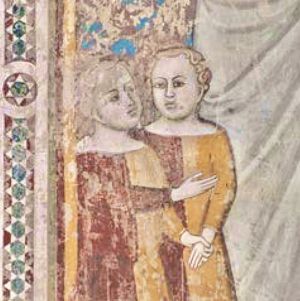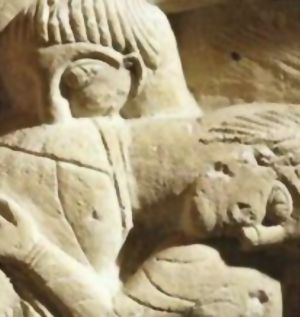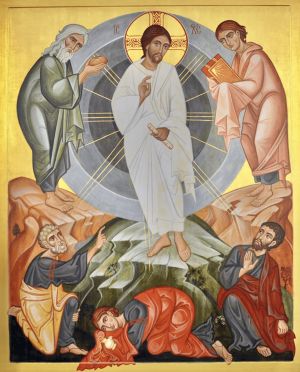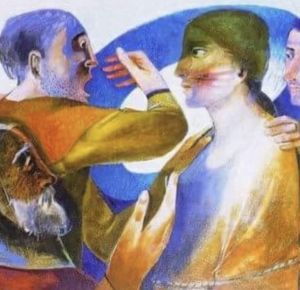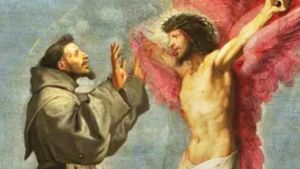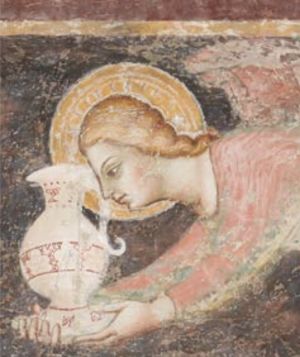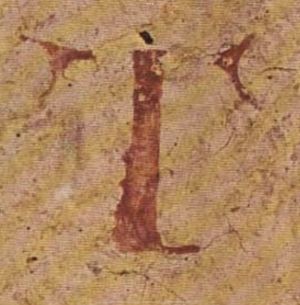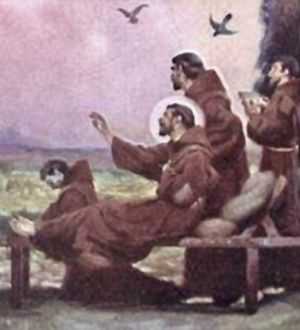
Teresa Girolami
Teresa Girolami è laureata in Materie letterarie e Teologia. Ha pubblicato vari testi, fra cui: "Pellegrinaggio del cuore" (Ed. Piemme); "I Fiammiferi di Maria - La Madre di Dio in prosa e poesia"; "Tenerezza Scalza - Natura di donna"; co-autrice di "Dialogo e Solstizio".
Samaritan woman, Francis, Clare: worship in Spirit and Truth
More willing to serve than to appear
Jesus urges the crowd to listen and observe what the scribes and Pharisees say, without doing according to their works, because of the obvious contradiction between their saying and doing.
The Lord also calls for humility and service.
The Poor Man of Assisi had made poverty the guiding motif of his life. We are not speaking only of material poverty, but first and foremost of spiritual poverty - with the numerous "sisters"... Humility, discretion, concealment; fleeing all forms of power and appearances, as the scribes and Pharisees loved to do - rebuked, in today's passage, by the Master Jesus.
«They say and do not do [...] All their works they do to be admired by the people» (Mt 23:3.5).
Francis was convinced that virtue must remain hidden, far from seeking admiration.
In the Sources, Celano reiterates:
"In this way Francis had rejected all glory that did not know Christ and had inflicted a radical repudiation on human praise.
He well knew that the price of fame diminished the secret price of conscience, and that it is far more harmful to abuse virtue than to lack it at all [...].
[We, on the other hand] patiently endure not being good, but we do not resign ourselves to not seeming so nor to not being believed so.
Thus we live completely in the pursuit of men's esteem, because we are nothing but men' (FF 723).
He continues, regarding the Poverello:
"Humble in demeanour, most humble in feeling, most humble in his own esteem.
By nothing could one distinguish that this prince of God held the office of superior, if not by this most shining gem, that is, that he was the least among the least.
This was the virtue, this was the title, this was the badge that indicated him as minister general.
His mouth knew no haughtiness, his gestures no pomp, his acts no ostentation" (FF 724).
Moreover, Francis, faithful to the Lord, "did not want to give anyone the title of 'father' or 'master', nor write it in his letters, out of respect for the Lord who said: 'do not call anyone father on earth, nor be called master'" (FF 1615).
So, the Minim loved to make himself a servant in the footsteps of Christ, as Clare herself practised in San Damiano among her sisters.
From the Legend, contained in the Sources, we learn:
"Clare, the primary stone and noble foundation of her Order, from the beginning studied to set the edifice of all virtues on the foundation of holy humility.
She promised holy obedience to blessed Francis, and never deviated in any way from this promise [...].
she would have wished to humbly submit rather than be at the head, and among the handmaids of Christ more willingly to serve than to be served.
[...] Compelled by blessed Francis, she finally assumed the government of the Women: and from this was born in her heart fear, not arrogance; and there grew not independence, but the spirit and practice of service.
For the more she sees herself elevated by these appearances of superiority, the lower she finds herself in her own esteem, more ready for duty, more humble even in outward appearance" (FF 3179)
«He who is greater among you shall be your servant» (Mt 23:11)
Tuesday 2nd wk. in Lent (Mt 23:1-12)
Measure without measure
Jesus calls us to avoid all judgement, to be merciful, giving with breadth.
After his conversion, Francis had experienced that the measure of Love is not having any.
Helped by the Good Samaritan, he had learnt to give overflowingly and joyfully to anyone who asked for the love of God.
Moreover, conforming to the Word of the Gospel that invites us to be merciful, he was animated by true compassion towards all those in need, starting with lepers, whom he once repudiated.
In the Sources, a jewel of early documentation, on the subject of judgement seasoned with mercy, we read:
"Those then who have received authority to judge others, let them exercise judgement with mercy, just as they themselves wish to obtain mercy from the Lord; for judgement will be without mercy for those who have not used mercy" (FF 191 - Letter to the Faithful).
The Minim had once had a singular experience of compassion on the plain of Assisi:
"Francis, while one day he was riding near Assisi, met a leper on the road.
Of these unfortunates he felt an invincible revulsion; but this time, doing violence to his instinct, he dismounted from his horse and offered the leper a coin, kissing his hand.
And receiving a kiss of peace, he got back on his horse and continued on his way.
From that day he began to free himself from his own selfishness, to the point of knowing how to overcome himself perfectly, with God's help" (FF 1407).
This encounter revolutionised his mentality, transforming him profoundly.
He urged his companions by example to make themselves a continuous gift to every indigent person.
"Nothing they considered private property [...] they were spontaneously generous with everything that was offered to them in the name of God. They joyfully donated, for love of Him, the alms they collected, to those who asked for them, especially the poor" (FF 1450).
Salvation received gratuitously had become a yardstick for them in their relations with their neighbour.
«Be merciful, as your Father is merciful»
«Do not judge and you will not be judged» (Lk 6:36-37)
Monday, 2nd wk. in Lent (Lk 6:36-38)
The wind of applause, only outside
On this Sunday of Lent, the Gospel recounts the Transfiguration of Jesus on Mount Tabor before Peter, James and John. The disciples, amazed, fall face down before such splendour, while from the cloud that covers them, the Voice of the Father calls them to listen to the Son, the object of his pleasure.
The Sources recount that 'the man of God, remaining alone and at peace, filled the woods with groans, sprinkled the earth with tears, beat his breast and, as if he had found a more intimate sanctuary, conversed with his Lord [...]
There, too, the friars, who piously observed him, heard him call out with cries and groans to divine goodness on behalf of sinners; they also heard him weep aloud for the Passion of the Lord, as if he had it before his eyes.
There, while praying at night, he was seen with his hands outstretched in the form of a cross, lifted off the ground with his whole body and surrounded by a luminous cloud: a marvellous light diffused around his body, which wonderfully testified to the light shining in his Spirit.
There, moreover, as reliable evidence testifies, the hidden mysteries of divine Wisdom were revealed to him, which he did not, however, divulge to others, except to the extent that the charity of Christ compelled him and the good of his neighbour required it [...]
When he returned from his prayers, which transformed him almost into another man, he took the greatest care to behave in harmony with others, so that the wind of applause, because of what he let slip outside, would not deprive him of his inner reward" (FF 1180 - Leggenda maggiore).
Francis guarded his transformation into 'Alter Christus' with great discretion, almost living in the cloister of his heart.
In fact, the same Sources attest:
"At first, when the true love of Christ had already transformed the lover into his own image, he began to conceal and hide the Treasure with such caution that even his closest friends did not discover it for a long time.
But divine Providence did not allow it to remain hidden forever and not come to the eyes of his loved ones [...]
One of his companions once, seeing the stigmata on his feet, said to him, 'What is this, good brother?'.
' Mind your own business," he replied (FF 719 - Second Life of Celano) with the frankness and simplicity that distinguished him.
«This is my beloved Son, in whom I am well pleased. Listen to him» (Mt 17:5)
Transfiguration of the Lord A (Mt 17:1-9)
Proudness in loving
Jesus proposes Perfection according to the Father: loving and forgiving even our enemies makes us sons.
Francis of Assisi often repeated that Love was not loved. Going beyond the considerations of the Old Testament (cf. Lev 19:18), for him one was called to love everyone and not to consider only one's fellow countrymen as neighbour.
«You have heard that it was said, 'You shall love your neighbour and hate your enemy. Now I say to you: love your enemies and pray for those who persecute you» (Mt 5:43-44).
In the writings of the Poor Man of Assisi [Paraphrase of the Our Father] we read:
"As we forgive our debtors:
and what we do not know how to fully forgive, you, Lord, make us fully forgive, so that, for your sake, we may truly love our enemies and devoutly intercede with you, rendering no one evil for evil, and striving in you to be of benefit to all" (FF 273).
In the Letter to a Minister:
"I say to you [...] every person who will be an obstacle to you, whether they be brothers or others, even if they cover you with beatings, all this I must consider as a grace [...].
And in this love them and do not expect them to become better Christians" (FF 234).
All this in order to be children of the heavenly Father, who makes the sun rise on all: good and bad.
Francis, in fact, in front of the scoundrels he met in a forest - while singing the praises of God in French - and who attacked him asking who he was, reacts thus:
"I am the herald of the great King; does this interest you?".
They beat him and threw him into a pit full of snow, saying:
"Stand there, ye herald of God!".
But he, turning this way and that, shaking off the snow, as soon as the brigands are gone, leaps out of the pit and, all joyful, resumes singing in a loud voice, filling the forest with praises to the Creator of all things" (FF 346).
Love your enemies in perfect joy!
Saturday 1st wk. in Lent (Mt 5:43-48)
Merciful Justice
Jesus calls for a non-formal Justice that follows the Father's criterion: seasoned with mercy, respectful.
Francis was a great spiritual teacher, almost without realising it.
He was convinced, by Grace, that justice always goes hand in hand with mercy.
A justice far from legalistic rigidism, eager to express itself in the fulfilment of God's will, in respect for one's brother always.
The Franciscan Sources teach:
"If it sometimes happened that a brother missed a word capable of wounding, the remorse of conscience would not let him have peace, until he confessed his mistake, humbly throwing himself to the ground and begging the offended person to put his foot on his mouth.
If that brother refused to make that gesture, when the offender was his superior, he would command him to put his foot over his mouth; when he was a subject, he would have the person in charge order him to do so.
In this way, the brothers strove to banish all rancour and incompatibility, and to keep the exchange of love intact.
They did all they could to replace every vice with the corresponding virtue, inspired and assisted in this by the Grace of Jesus Christ" (FF 1449).
Justice and Mercy to be sought, to be asked of God first of all in prayer and silence, because a new heart is a gift from the Lord, a continuous exodus.
In the Rule of the Hermitages, written by Francis, we read:
"Let these [the brothers] have a cloister, in which each one has his own small cell, in which he can pray and sleep [...] and get up for matins, and first of all seek the kingdom of God and his justice" (FF 137).
In the same Praises of God Most High, Francis expresses himself thus:
«[...] You are justice,
You are temperance,
You are all our riches enough» (FF 261).
The Poverello, knowing that the Lord-Justice called for a greater justice than that of manner, worked hard for the kingdom of heaven and tried to teach his brothers to do the same.
He never forgot that mercy always prevails in judgement before God.
«For I tell you, unless your righteousness abounds more [than that] of the scribes and Pharisees, you will not enter the kingdom of heaven» (Mt 5:20)
Friday 1st wk. in Lent (Mt 5,20-26)
Franciscan Transfiguration: without applause
Knock: it will be opened to you!
The Matthew passage emphasises the goodness of the Father, who does not give a stone to the son who asks for bread. Then here is the golden rule: what one wants for oneself, it is good to do for others.
For Francis of Assisi, giving to those in need was a law of life. This verb, 'to give', was often replaced by another typically Franciscan one: 'to give back'.
For him, handing over his cloak to a poor man who knocked on the door of his heart meant giving back what he had lent.
On the other hand, as the Gospel says, what we wish to be done to us, we must also do to our neighbour (cf. Mt 7:12).
At the same time, he considered it important and a sign of humility to know how to ask.
After his change of life, obeying the voice of the Crucifix of San Damiano and overcoming himself, he gave himself to countless labours.
The Sources narrate:
"Francis, a man of God, naked of the things of the world, consecrated himself to divine worship and, no longer minding his own advantage, committed himself to serving God in every way possible.
Returning to the church of St Damian, all happy and fervent, he put on a hermit's habit and comforted the priest of that church with the same words of encouragement addressed to him by the bishop.
Then, returning to the city, he began to walk through squares and streets, raising praises to the Lord with an inebriated soul.
As he finished his praises, he worked to obtain the stones needed to restore the church. He would say:
«Whoever gives me one stone, will have one reward; whoever gives me two stones, two rewards; whoever gives me three, as many rewards!».
With ardent enthusiasm he made this and similar appeals full of naivety, for this chosen one of God had a candid and childlike soul, he did not resort to the learned language of human wisdom, but was simple and immediate in everything" (FF 1420).
According to the Poverello, begging for the love of God was the noblest and most dignified gesture before the Lord and the world.
"And indeed, everything the heavenly Father has created for the benefit of mankind, he continues to give to us gratuitously even after sin, to the worthy as well as the unworthy, out of love for his beloved Son" (FF 1610).
«Ask and it will be given to you, seek and you will find, knock and it will be opened to you» (Mt 7:7)
Thursday 1st wk. in Lent (Mt 7,7-12)
The only Sign
In Lenten season, liturgy emphasises the importance of changing one's life, without going for signs.
One 'sign': that of the Crucified One, of Jesus who died and rose again for all.
By derivation, an eloquent sign becomes an existence converted to the praise of God.
According to St Bonaventure, Francis is symbolised in the figure of the second angel [the first is Christ] who ascends from the east (cf. Rev 7:2) and bears within him the seal of the living God.
This is confirmed by his mission to call men to penance and mark the elect with the sign of the Tau*, and above all by his being himself transformed, even in body, into the Crucified Christ.
«This generation [...] seeks a sign, but no sign will be given it except the sign of Jonah» (Lk 11:29)
The Sources attest:
"This herald of God, worthy to be loved by Christ [...] is the servant of God Francis [...] an example of perfection for the followers of Christ.
We are moved to embrace, with faith and piety, this conviction by the fact that he had the mission from heaven to call men to weep, to mourn, to shave their heads and to gird their loins, and to impress, with the sign of the penitential cross and with a habit made in the shape of a cross, the Tau on the foreheads of those who weep and mourn.
But he confirms in it, with its incontestable truth, the testimony of that seal that made him like the living God, that is, like Christ Crucified. A seal that was imprinted in his body not by the work of nature or the skill of an artificer, but rather by the marvellous power of the Spirit of the living God" (FF 1022).
The Crucifix in Francis: icon of rebirth through a continuous existential exodus. A life marked by the love of God.
* Letter of the Hebrew and Greek alphabet, whose shape recalls the figure of the cross.
* Francis chose it as his seal and signature. Brother Pacifico contemplated it shining on his forehead.
Wednesday 1st wk. in Lent (Lk 11:29-32)
Treasury of Prayer
Jesus invites his disciples to a prayer that is not long-winded, but bare, essential; as children.
Although in different paradigms, Clare and Francis of Assisi were aware that in the depths of their being lurked a secret to be found in order to be reborn and healed.
To the point that, distancing himself from his earthly father, before the local bishop, the Poverello expressed himself thus:
"Hitherto I have called you, my Father on earth; from now on I can say with all confidence: OUR FATHER, WHO IS IN HEAVEN, because in Him I have placed all my Treasure and placed all my Trust and Hope" (FF 1043).
To his brothers who asked him to teach them how to pray, he replied:
"When you pray, say: Our Father, and [...] We adore you, O Christ, in all your churches that are in the whole world, and we bless you, because through your holy Cross you have redeemed the world" (FF 1068).
And in the paraphrase of the "Our Father" we find:
"Hallowed be thy Name: let the knowledge of Thee be made bright in us, that we may know the breadth of thy benefits, the extent of thy promises, the sublimity of thy majesty and the depth of thy judgments" (FF 268).
A prayer, therefore, attested by life, by the capacity for forgiveness, in Listening.
All in the cell of one's own body, Francis maintained - as the Perugina Legend reminds us:
"Wherever we are or move, we take our cell with us: brother body; the soul is the hermit who lives in it praying to God and meditating.
And if the soul does not live serenely and solitarily in its cell, it is of little use to the religious to have a cell erected by the hand of man" (FF 1636).
And in the Legend, Clare herself:
"How much strength and support she received in the furnace of ardent prayer [...] she brought back from the fire of the altar of the Lord burning words, such as to inflame the hearts of the sisters" (FF 3199).
A prayer not marked by the multiplication of words, but by an authentic and profound relationship with God, who knows everything.
«When you pray, do not babble like the pagans, for they think they will be heard because of their wordiness» (Mt 6:7)
Tuesday 1st wk. in Lent (Mt 6,7-15)
Brothers and sisters, a frequent flaw of those in authority, whether civil or ecclesiastic authority, is that of demanding of others things — even righteous things — that they do not, however, put into practise in the first person. They live a double life. Jesus says: “They bind heavy burdens, hard to bear, and lay them on men’s shoulders; but they themselves will not move them with their finger (v.4). This attitude sets a bad example of authority, which should instead derive its primary strength precisely from setting a good example. Authority arises from a good example, so as to help others to practise what is right and proper, sustaining them in the trials that they meet on the right path. Authority is a help, but if it is wrongly exercised, it becomes oppressive; it does not allow people to grow, and creates a climate of distrust and hostility, and also leads to corruption (Pope Francis)
Fratelli e sorelle, un difetto frequente in quanti hanno un’autorità, sia autorità civile sia ecclesiastica, è quello di esigere dagli altri cose, anche giuste, che però loro non mettono in pratica in prima persona. Fanno la doppia vita. Dice Gesù: «Legano infatti fardelli pesanti e difficili da portare e li pongono sulle spalle della gente, ma essi non vogliono muoverli neppure con un dito» (v.4). Questo atteggiamento è un cattivo esercizio dell’autorità, che invece dovrebbe avere la sua prima forza proprio dal buon esempio. L’autorità nasce dal buon esempio, per aiutare gli altri a praticare ciò che è giusto e doveroso, sostenendoli nelle prove che si incontrano sulla via del bene. L’autorità è un aiuto, ma se viene esercitata male, diventa oppressiva, non lascia crescere le persone e crea un clima di sfiducia e di ostilità, e porta anche alla corruzione (Papa Francesco)
This is the road Jesus points out to all who want to be his disciples: "Judge not... condemn not... forgive, and you will be forgiven; give, and it will be given to you.... Be merciful, even as your Father is merciful" (Lk 6: 36-38). In these words we find very practical instructions for our daily conduct as believers [Pope Benedict]
Questa è la strada che Gesù mostra a quanti vogliono essere suoi discepoli: "Non giudicate... non condannate... perdonate e vi sarà perdonato; date e vi sarà dato... Siate misericordiosi come è misericordioso il Padre vostro" (Lc 6, 36-38). In queste parole troviamo indicazioni assai concrete per il nostro quotidiano comportamento di credenti [Papa Benedetto]
Path of Lent, learning a little more how to “ascend” with prayer and listen to Jesus and to “descend” with brotherly love, proclaiming Jesus (Pope Francis)
Itinerario della Quaresima, imparando un po’ di più a “salire” con la preghiera e ascoltare Gesù e a “scendere” con la carità fraterna, annunciando Gesù (Papa Francesco)
Anyone who welcomes the Lord into his life and loves him with all his heart is capable of a new beginning. He succeeds in doing God’s will: to bring about a new form of existence enlivened by love and destined for eternity (Pope Benedict)
Chi accoglie il Signore nella propria vita e lo ama con tutto il cuore è capace di un nuovo inizio. Riesce a compiere la volontà di Dio: realizzare una nuova forma di esistenza animata dall’amore e destinata all’eternità (Papa Benedetto)
You ought not, however, to be satisfied merely with knocking and seeking: to understand the things of God, what is absolutely necessary is oratio. For this reason, the Saviour told us not only: ‘Seek and you will find’, and ‘Knock and it shall be opened to you’, but also added, ‘Ask and you shall receive’ [Verbum Domini n.86; cit. Origen, Letter to Gregory]
duevie.art
don Giuseppe Nespeca
Tel. 333-1329741
Disclaimer
Questo blog non rappresenta una testata giornalistica in quanto viene aggiornato senza alcuna periodicità. Non può pertanto considerarsi un prodotto editoriale ai sensi della legge N°62 del 07/03/2001.
Le immagini sono tratte da internet, ma se il loro uso violasse diritti d'autore, lo si comunichi all'autore del blog che provvederà alla loro pronta rimozione.
L'autore dichiara di non essere responsabile dei commenti lasciati nei post. Eventuali commenti dei lettori, lesivi dell'immagine o dell'onorabilità di persone terze, il cui contenuto fosse ritenuto non idoneo alla pubblicazione verranno insindacabilmente rimossi.


